Search Images
Browse Content (p. 1124)
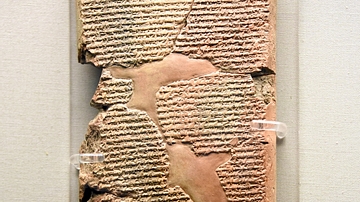
Image
Clay Tablet Naming Gyges of Lydia
This clay tablet is inscribed in a cuneiform script. It is an account of the Egyptian campaigns of Ashurbanipal II, king of Assyria (reigned 668-627 BCE) and his reception of an embassy from Gyges, the first king of Lydia. From the library...
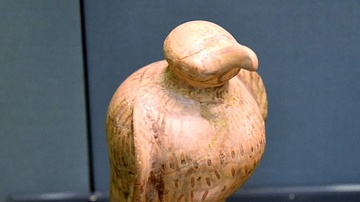
Image
Phrygian Pottery Vessel
This is a painted pottery bird-shaped vessel. The bird's feathers are indicated by the brown pigment. The orifice of the vessel lies below the tail. From Phrygia, Central Anatolia, in modern-day Turkey. Phrygian, 8th to 7th century BCE. (The...
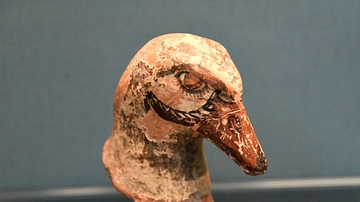
Image
Fragment of a Phrygian Goose-Headed Pottery
Only this part of a reddish painted pottery has survived. This is a goose's (or duck's) head. From Samsun, Black Sea Region, in modern-day Turkey. Phrygian, 5th to 4th century BCE. (The British Museum, London).
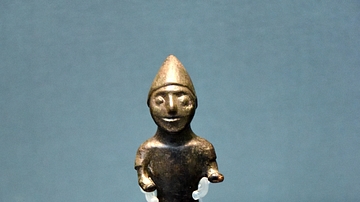
Image
Phrygian Figurine of a Naked Man
This bronze figurine depicts a nude man wearing a pointed hat. From Phrygia or Lycia, Central or Western Turkey. 8th to 6th century BCE. (The British Museum, London).
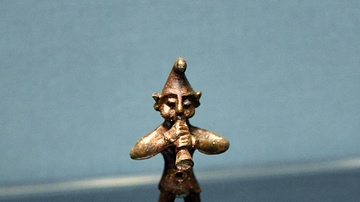
Image
Bronze Figurine of a Trumpeter
This male trumpeter wears a pointed hat and a short kilt. From Phrygia or Lycia, Central or Western Turkey. 8th to 6th century BCE. (The British Museum, London).

Image
February, Les Tres Riches Heures
A medieval manuscript illustration depicting the work on an agricultural estate during the month of February. From 'Les Très Riches Heures du Duc de Berry', c. 1412-1440 CE.
(Condé Museum, Château de Chantilly, Oise, France)
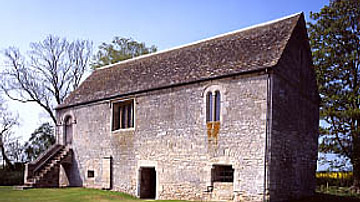
Image
Boothby Pagnell Manor House
Boothby Pagnell Manor House, Lincolnshire, U.K. Built c. 1200 CE.
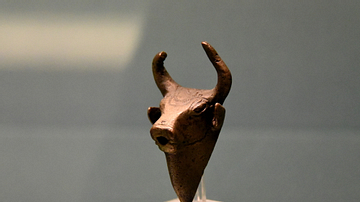
Image
Urartian Bull's Head Spout
This bronze spout was shaped like a bull's head. The horns are curved and there is an ornamented forelock. From Urmia, north-western Iran. Urartian, 8th to 7th century BCE. (The British Museum, London).
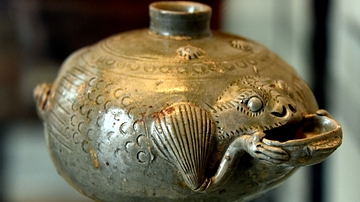
Image
Yue Ware Water Vessel
Yue stoneware water-dropper vessel in the form of a frog or a toad holding an ear or wine cup. Glazed. Made in Shanglinhu. From Zhejiang province. South China. Western Jin Dynasty. 265-316 CE. (The British Museum, London).

Image
Great Chatfield Manor
Great Chalfield Manor, rebuilt 1465-80 CE. Wiltshire, U.K.